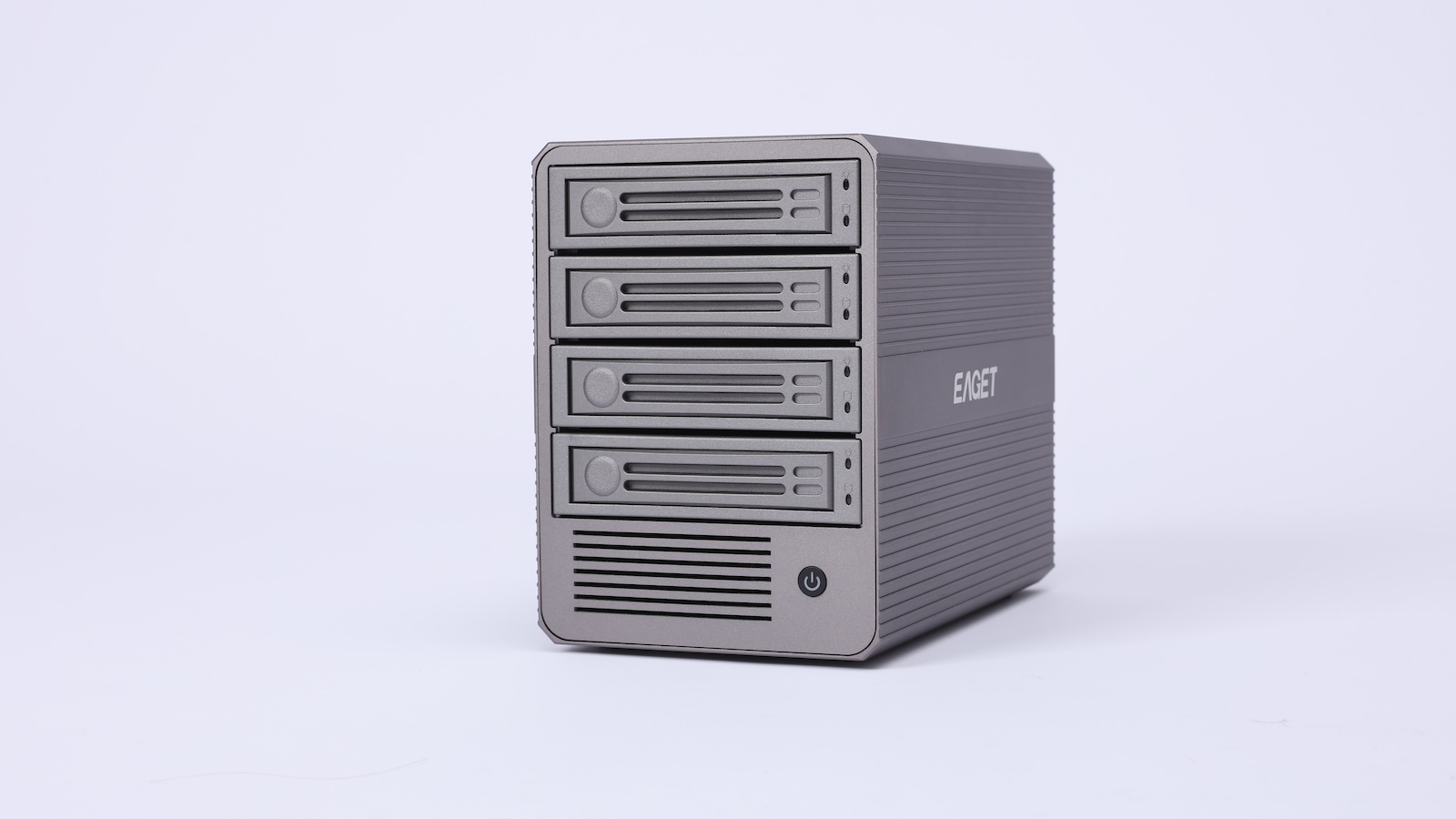EAGET Minis Smart DAS is a compact personal server that combines the speed of direct-attached storage with the convenience of networked access, designed for individuals, creators, and small teams who want local control of their files.
Design and form factor
The Minis device is intentionally small and unobtrusive so it can fit on a desk or shelf while providing accessible drive bays for upgrades and maintenance. Its hardware focuses on low power consumption, quiet operation, and efficient thermal management for continuous home or small-office use.
Storage architecture
Minis functions as a hybrid between DAS and NAS, delivering low-latency local performance while enabling remote access when needed. The device supports common RAID configurations to balance performance and redundancy according to user priorities.
Scalability and capacity
Drive scalability is emphasized: Minis accepts multiple drive sizes and can reach high total capacities suitable for large media libraries and long-term archives. Users can pick configurations that match current needs and expand later as storage demands grow.
Software and AI features
The operating environment includes local AI-driven file organization and search that indexes content on-device, helping users find photos, documents, and videos without relying on external cloud services. Automatic categorization and content-aware indexing speed up retrieval and asset management.
Multiuser and permissions
The system supports account-based spaces and user-level permissions so multiple household members or team participants can have private, segregated areas on the same device. Administrators can assign roles and limit access to shared resources.
Performance and connectivity
As a Smart DAS, Minis prioritizes fast, low-latency transfers for tasks like editing large media files and performing quick backups. It provides modern high-speed local ports for direct transfers along with networked options for streaming and remote management.
Platform compatibility
Minis integrates with mainstream desktop platforms including Windows, macOS, and Linux, making it straightforward to add into existing workflows without extensive reconfiguration or special client software for basic file access.
Security and privacy
Data is stored and indexed locally, giving users direct control over encryption, authentication, and access policies. The local-first indexing model reduces the need to share content or metadata with external providers and supports configurable security measures like strong user authentication and RAID fault tolerance.
Backup and redundancy
Minis supports configurable RAID levels and built-in backup tools for scheduled snapshots or mirrored copies to secondary drives. Pairing local redundancy with an off-site backup strategy provides a practical balance between fast recovery and disaster resilience.
Use case: creators and media professionals
Photographers, videographers, and editors benefit from the device’s low-latency access to large files and content-aware indexing that speeds asset discovery during editing cycles. The platform works well in small studios or on-set workflows where performance and quick retrieval matter.
Use case: families and personal archival
Households can use Minis as a private alternative to commercial cloud services for storing photos, home videos, and important documents, using per-user accounts and automated organization to simplify finding memories and managing family data.
Use case: small businesses and teams
Small teams gain a central repository for shared assets, versioned documents, and media libraries with role-based access controls. Minis supports collaborative workflows by combining local performance for heavy tasks with remote access for distributed contributors.
Limitations and deployment considerations
Minis is designed for personal, creative, and small-business scenarios and is not a replacement for enterprise-class SANs or large-scale virtualization. Buyers should match model choice to expected capacity and throughput, and plan for physical security, power stability, and off-site backups.
Future outlook
The Minis platform is positioned to evolve as local AI models become more efficient and storage technologies advance; firmware updates and companion apps can expand integration, enhance search capabilities, and improve interoperability across devices. Regular updates will be important to maintain security and feature competitiveness.




